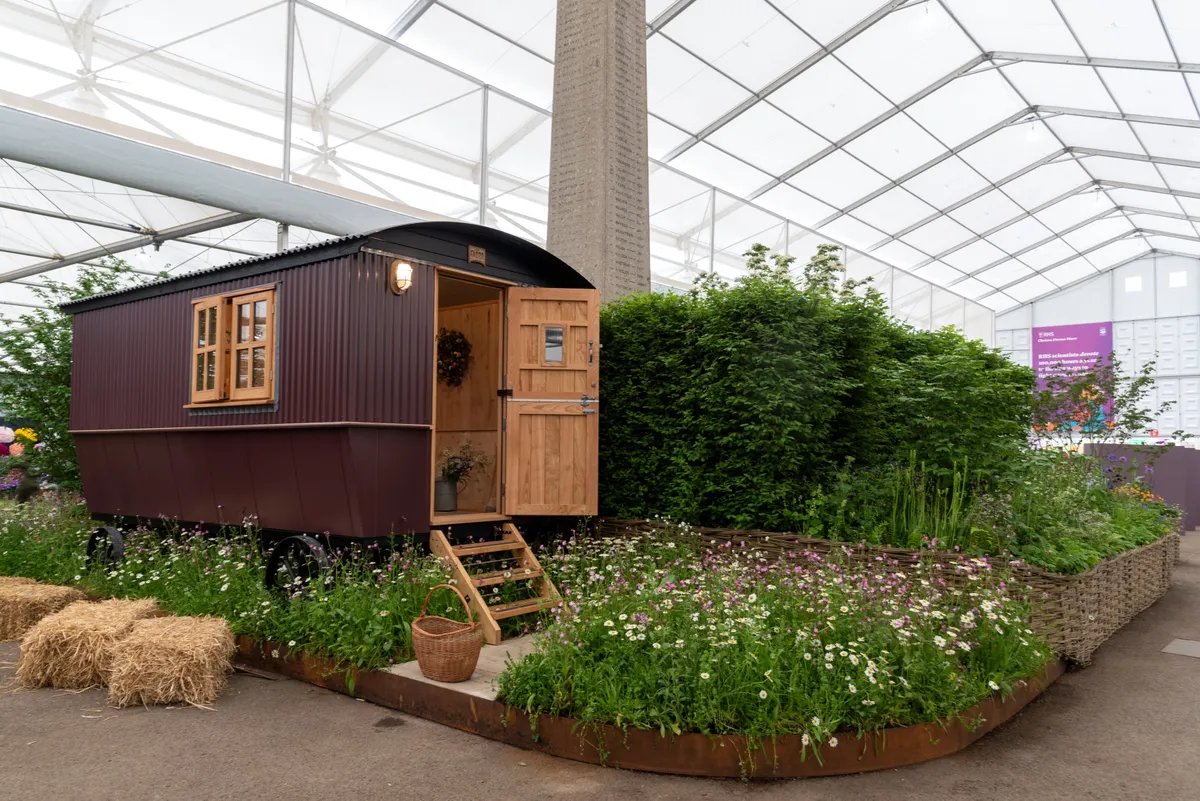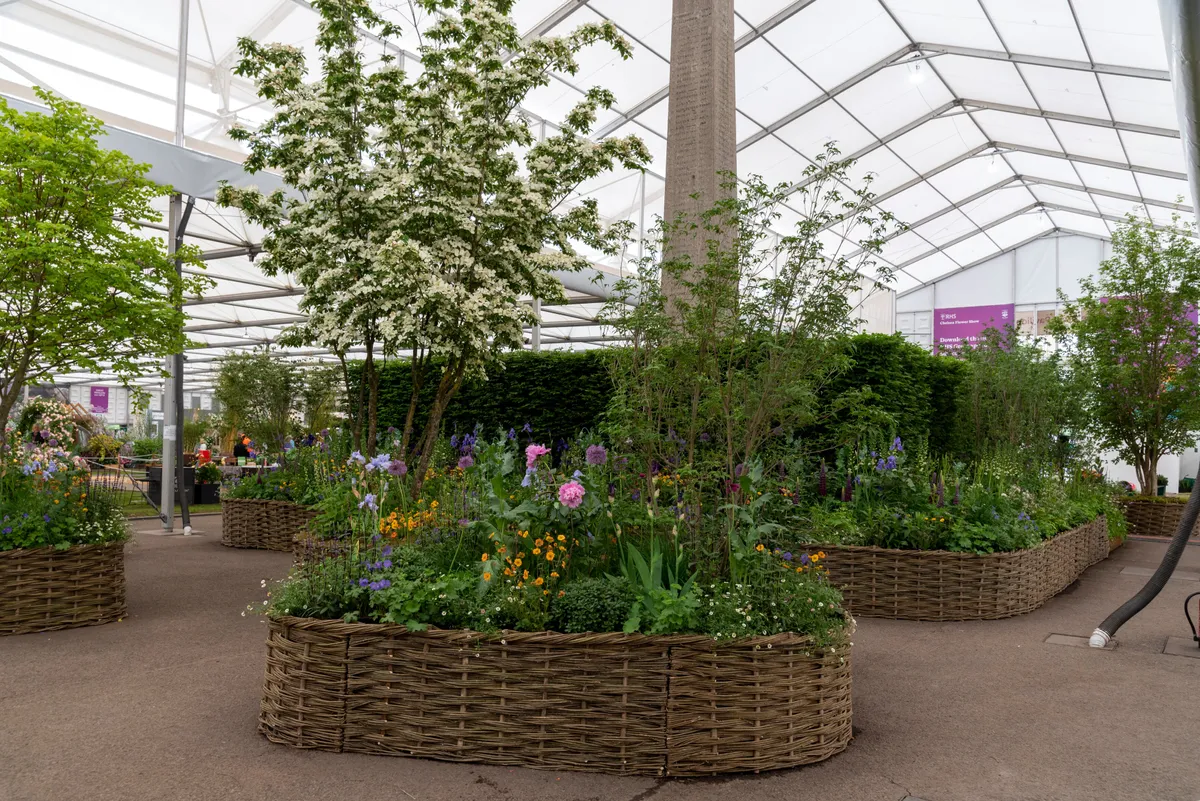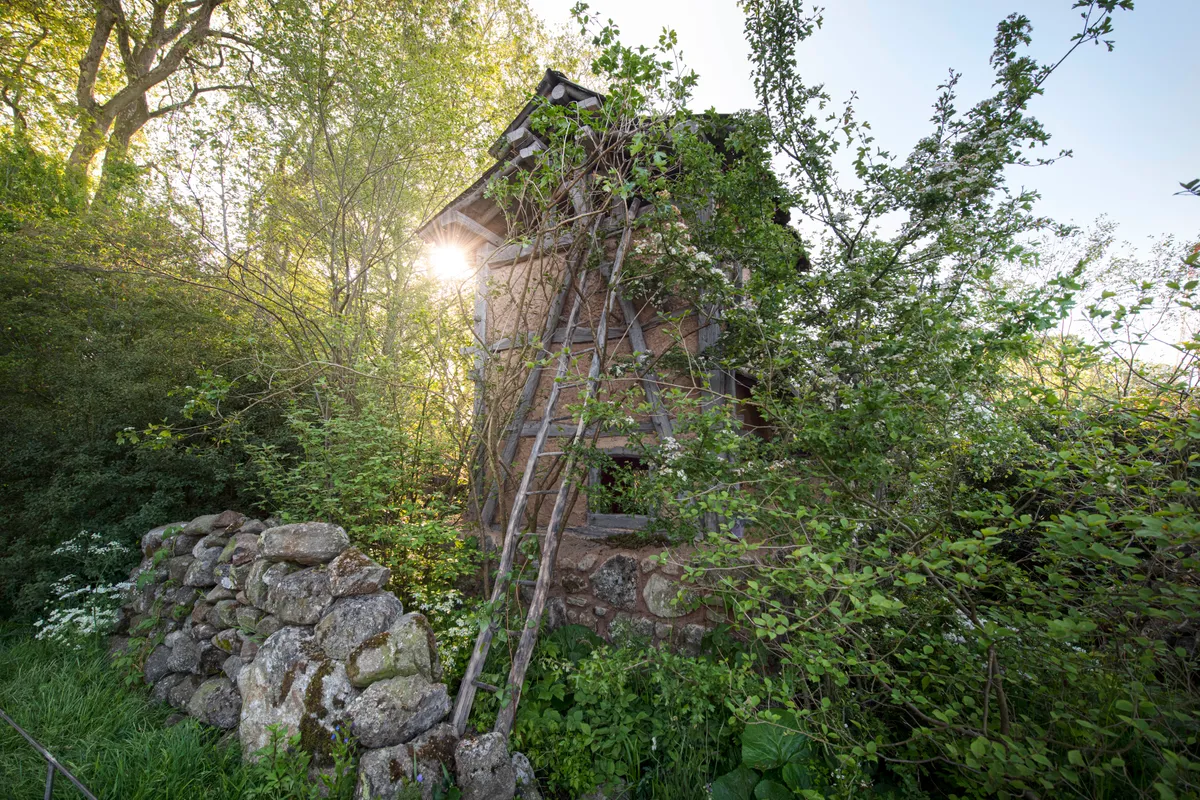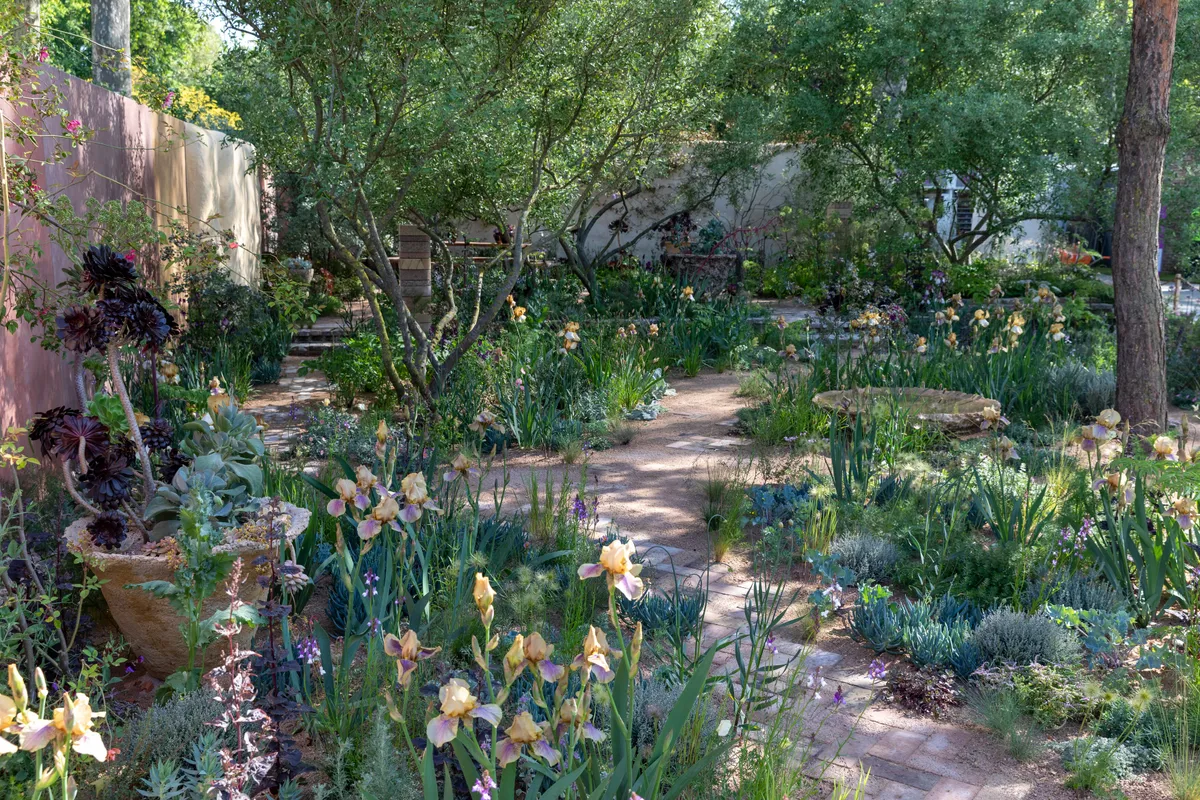If you strode into the Great Pavilion at the RHS Chelsea Flower Show last year, you’d have seen history among the flowers. Enormous plinths carrying illustrated portraits of notable women from horticulture: plantswoman Beth Chatto, designer Gertrude Jekyll, writer Vita Sackville-West, botanist Janaki Ammal and campaigner Wangari Muta Maathai among them. These, we were told, are “Heroines of Horticulture”: upheld by the RHS in an attempt to record the efforts of some of the women whose work has been hidden by patriarchal society over the decades.

Chelsea’s famous Monument had a feminist takeover. Polly Wilkinson’s dreamy design, which led off from the plinths, held this fast in its very existence. Wilkinson worked with all-female design and planting teams to usher her vibrant cottage planting from the ground up. From willow containers woven by Mollie McMillen of Field Farm rose specialist plants grown by women from Hare Spring Cottage Plants, Botanical Nursery and Claire Austin Hardy Plants.
There were more women designers at Chelsea than men for the first time ever
The moment didn’t go unnoticed by the RHS itself, which was proud to announce 2023 as the moment when there were more women designers at Chelsea than men for the first time ever: 58 per cent of the garden designers competing for a medal in 2023 defined as female, more than double the 27 per cent a decade ago, and a notable improvement on the 45 per cent of 2022.

Look more closely, though, and the news isn’t as overwhelmingly positive. That majority sits only in two categories: the All About Plants gardens, located in the Great Pavilion, and the Balcony and Container gardens, tucked away in enclaves of the showground, a considerable stumble from Main Avenue, where the gender divide remains deeply unequal with 11 male designers to four female in 2023. It was a worse story in the Sanctuary Gardens, where men outnumbered women designers three to one.
More from Chelsea
- Main Show gardens
- Sanctuary gardens
- Chelsea this year is a load of rubbish... in a good way
- RHS Chelsea Flower Show 2023: Medals announced
Head to our dedicated Chelsea Flower Show hub page
Men still hog the footfall at RHS Chelsea
What this means is that, aside from the giant plinths, men still hog the footfall at RHS Chelsea. It’s not that the Container and Balcony or All About Plants gardens aren’t worth looking at - I frequently find them the most regular source of useful, accessible ideas - but they take a dedicated effort to spot amid the limelight of the Show Gardens.

Speaking of the Show Gardens, last year three of the four exhibiting female designers - Ji-hae Hwang, Sarah Price, Charlotte Harris (co-designed with Hugo Bugg on the Best In Show Horatio's Garden) - won Gold for their designs, with Jilayne Rickards taking home Silver for her Flora & Fauna garden. It goes without saying that women designers are capable of delivering a showstopping garden; that we are still so poorly represented in the arena where they are best-seen remains the bigger mystery.
It goes without saying that women designers are capable of delivering a showstopping garden
And those are the named women involved in Chelsea. Every year, women outnumber men in volunteering to plant up gardens that attract tens of thousands of paying attendees. They are called volunteers because they are frequently not paid. Landscapers, who are mostly male, are. These gardens are literally built by unpaid female labour. In that context, celebrating the work of horticultural women from history feels a little awkward.

Chelsea is making things easier for women in smaller, somewhat overdue ways. Last year, for instance, was the first that infants are allowed into the showground, provided that they are in a sling or arms (no prams or buggies), enabling people like me - a working mother of a baby - to attend the show last year without having to pay for childcare to do so (children over five are now also allowed in). This, though, hasn’t been as widely advertised as the gender divide, with the official line being that bringing babies in arms “is discouraged due to the unsuitable nature of the environment”. It still felt a bit like I was sneaking a contraband baby into the place.
I’m looking forward to the day when there are equal or more women than men on Main Avenue
Pollyanna Wilkinson
During the show last year, I asked Wilkinson, who won Silver and the People’s Choice Award at Chelsea in 2022 for her Mothers for Mothers Garden, whether it felt different. “It’s fabulous to have the opportunity to uphold women gardeners,” she said, “but I’m looking forward to the day when there are equal or more women than men on Main Avenue. I’m looking forward to the day when we don’t have to make a fuss about it at all.”
If we don’t shout about the extent of the problem, it’s harder to acknowledge that there is one.
Fudging the figures about the gender divide at Chelsea will only slow the progress needed to make representation equal, because if we don’t shout about the extent of the problem, it’s harder to acknowledge that there is one. It’s fantastic that women are leading those starting their Chelsea journeys in the Balcony and Container Gardens - perhaps this is the beginning of a more equal Main Avenue. But female designers are more than capable of taking on those bigger plots. Here’s hoping we’ll see more of them doing so this year and in future years.
Alice Vincent is the author of Why Women Grow: Stories of Soil, Sisterhood and Survival (£16.99)
